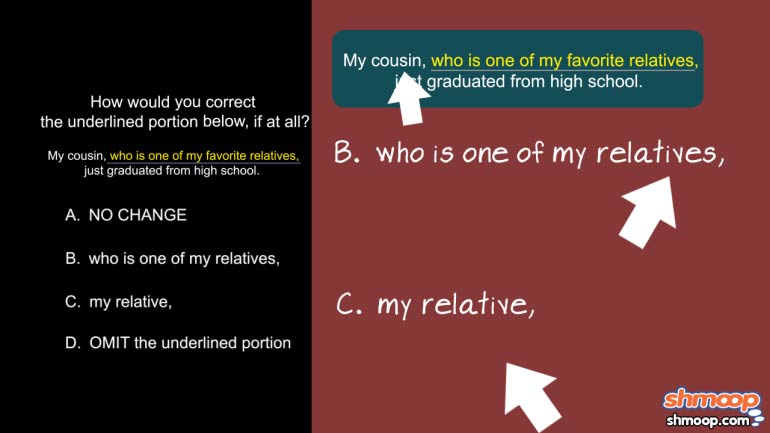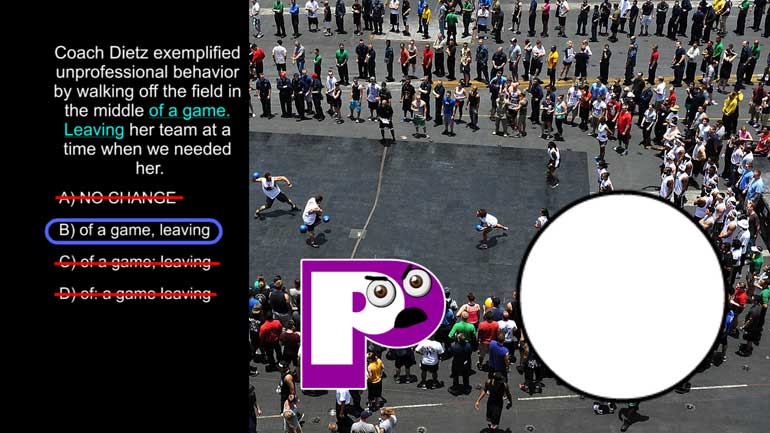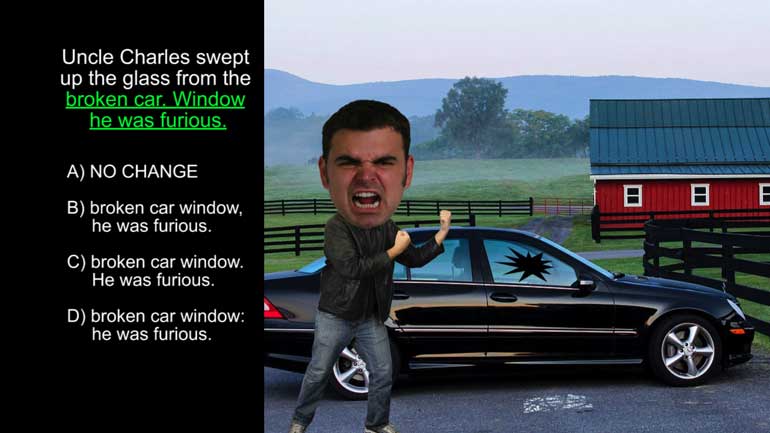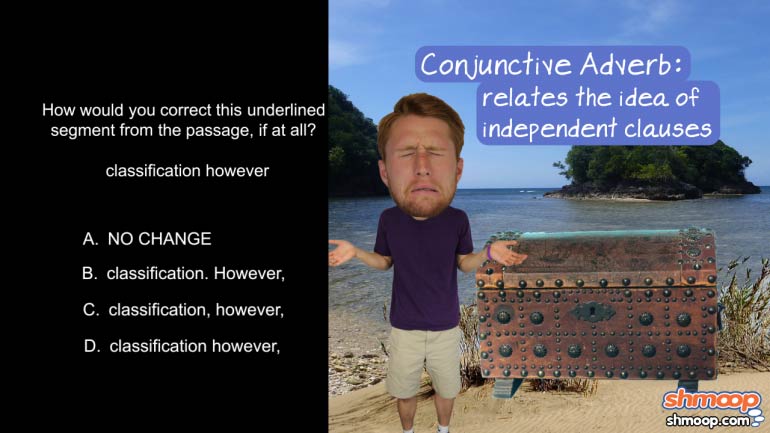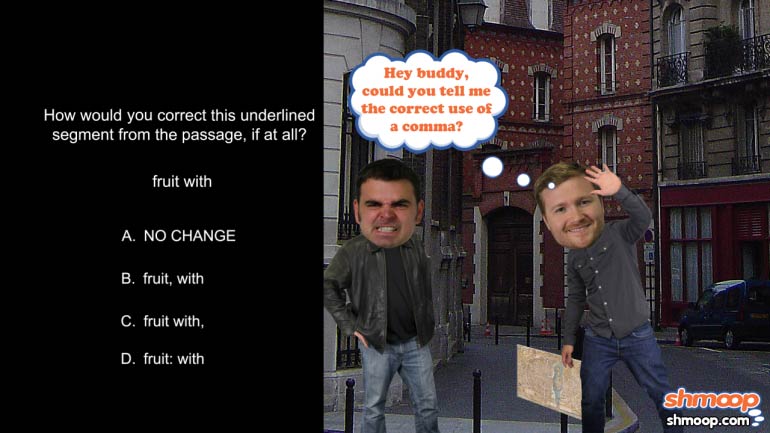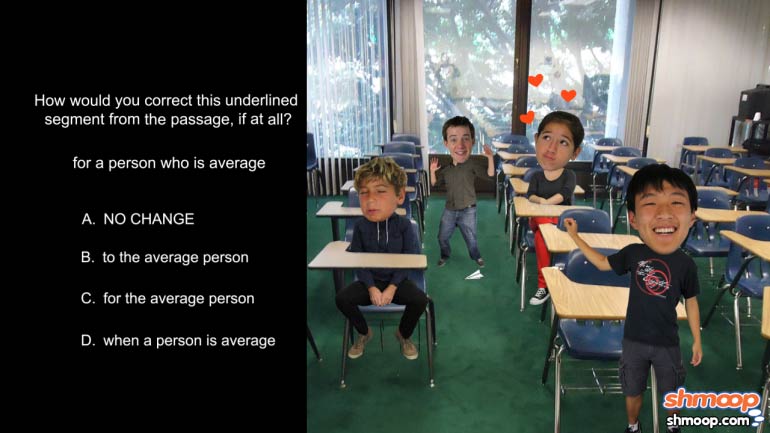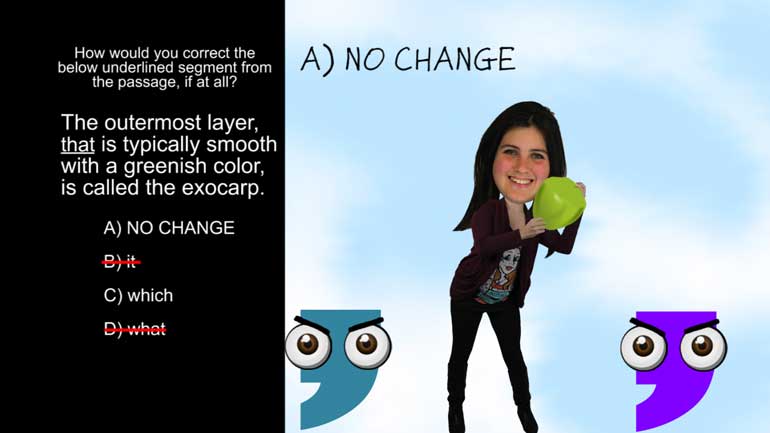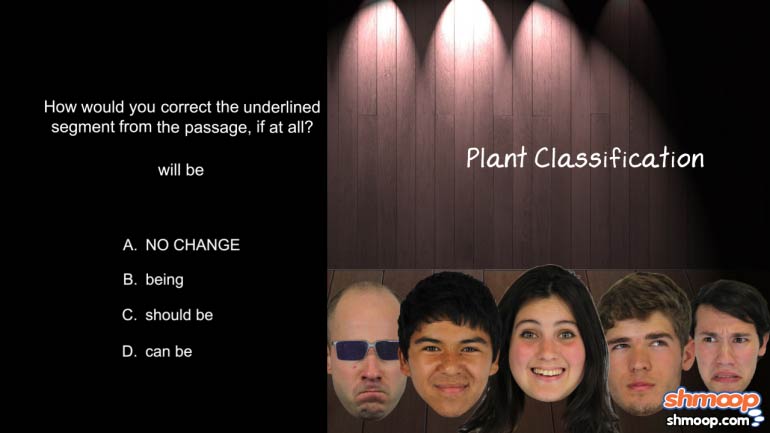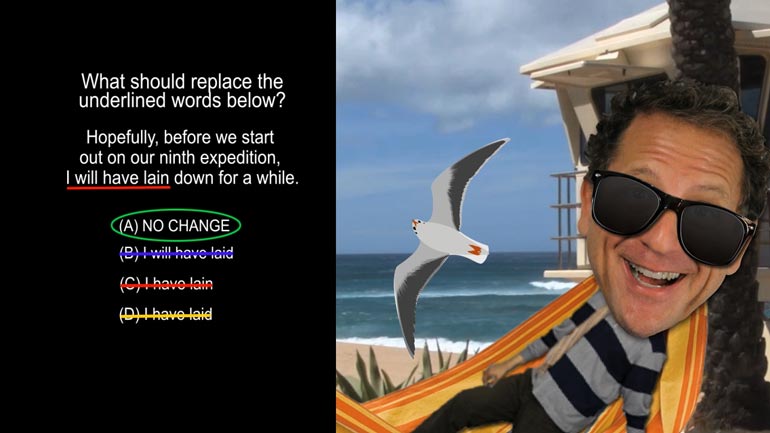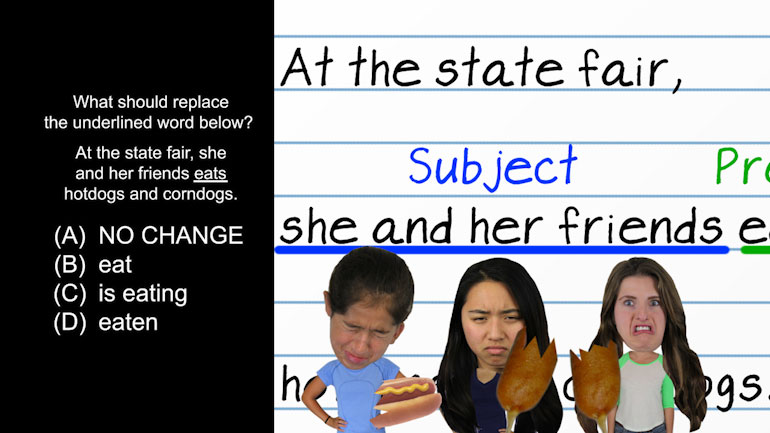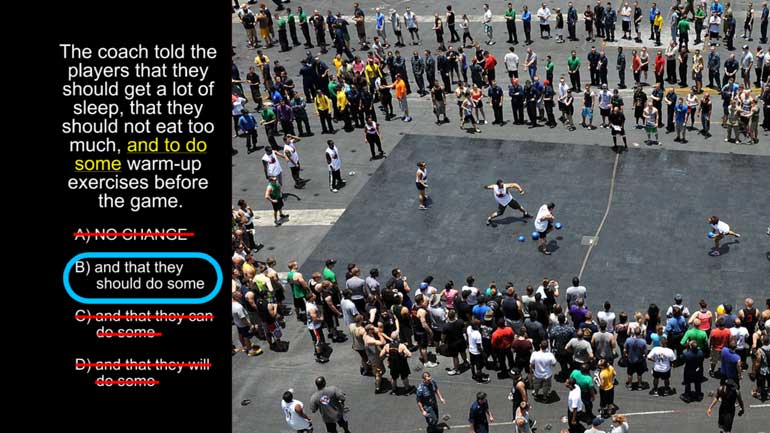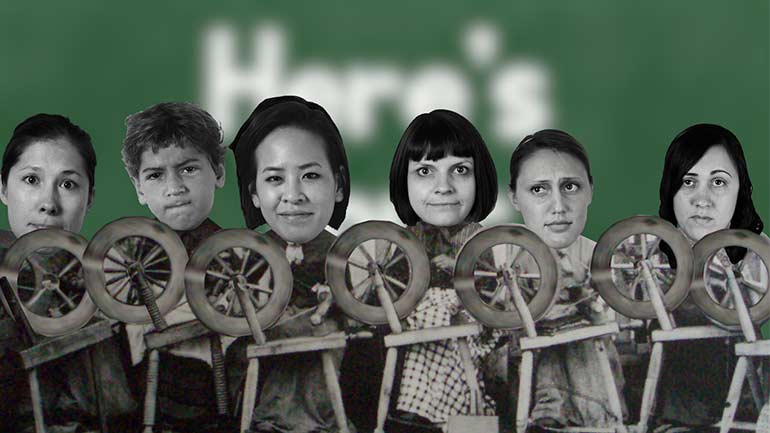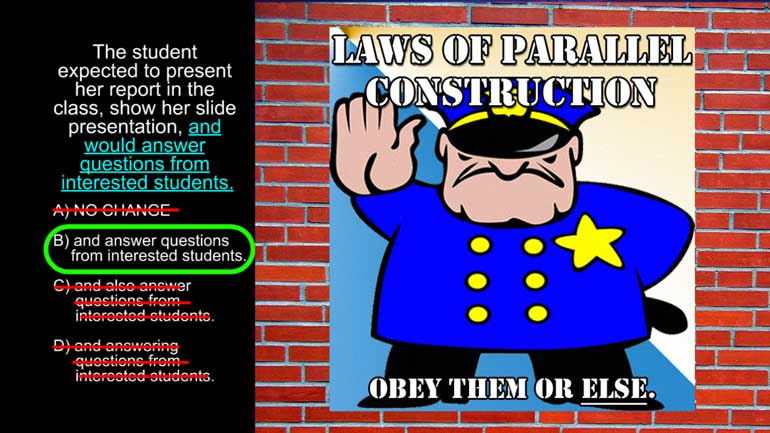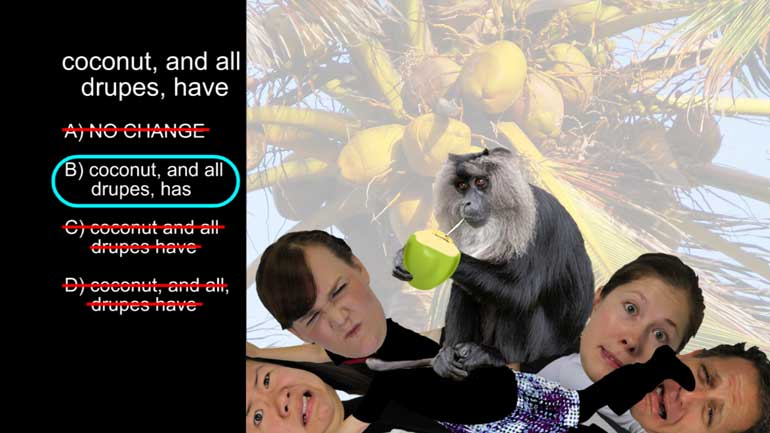ShmoopTube
Where Monty Python meets your 10th grade teacher.
Search Thousands of Shmoop Videos
Usage/Mechanics Videos 29 videos
ACT English: Punctuation Drill 3, Problem 4. Which choice best formats this list of items?
ACT English: Punctuation Drill 2, Problem 3. Where does the semicolon fit best?
ACT English: Style Drill 2, Problem 4. Which choice is the most concise way to properly write the sentence?
ACT English 1.4 Sentence Structure 302 Views
Share It!
Description:
ACT English: Sentence Structure Drill 1, Problem 4. Which punctuation fits best?
Transcript
- 00:03
Here's your Shmoop du jour, brought to you by participles. Hey, it's your participle,
- 00:09
you can cry if you want to.
- 00:10
How should you change the highlighted portion below, if at all?
- 00:13
Coach Dietz exemplified unprofessional behavior by walking off the field in the middle of
- 00:19
a game. Leaving her team at a time when we needed her.?
Full Transcript
- 00:29
Verbals are derived from verbs, but they serve different functions from their original verb
- 00:34
form.
- 00:34
Here, "leaving" is based on the verb "leave," but the "ing" ending and its function in the
- 00:40
sentence magically transform it into a type of verbal known as a participle.
- 00:44
"Leaving" introduces the participle phrase, "Leaving her team at a time when we needed
- 00:49
her."
- 00:50
Participles and participle phrases always function as adjectives, which means that they
- 00:54
have to be attached to a noun or pronoun that they modify in some way.
- 00:59
The participle phrase in question here is describing, or modifying, Coach Dietz, who
- 01:04
either just can't take the heat, or has a serious lack of team spirit.
- 01:07
However, it's well nigh impossible for a participle phrase to do its job of modifying something,
- 01:12
when there's a period getting in its way.
- 01:14
In order for it to describe Coach Dietz, it needs some kind of punctuation to keep it
- 01:18
attached to the previous sentence.
- 01:20
Therefore, we know that choice (A) is incorrect.
- 01:22
The period that's keeping our phrase apart from the word it's trying to modify actually
- 01:26
turns it into a fragment.
- 01:28
What can we say? Participle phrases just aren't good with being alone...
- 01:31
Choice (C) does try to bridge the gap by using a bit of punctuation.
- 01:34
Unfortunately, semicolons are used to connect two independent clauses.
- 01:37
Since our modifying participle phrase is totally dependent in the first sentence, we can say
- 01:42
sayonara to choice (C).
- 01:43
Choice (D) tries to connect the two sentences with a colon, but this doesn't work either.
- 01:47
Colons can only be used to connect an independent clause to something else, like a list or another
- 01:52
independent clause.
- 01:53
The trouble here is that "Coach Dietz exemplified unprofessional behavior by walking off the
- 01:56
field in the middle of," is not an independent clause.
- 01:59
It just sounds weird, right? Putting the colon there breaks up the prepositional phrase "of
- 02:05
the game" in a way that just isn't natural.
- 02:07
We can definitely take (D) out of the running.
- 02:09
Choice (B) wins the day by correctly using a comma to connect the participle phrase to
- 02:13
the first sentence.
- 02:15
Now our modifying phrase can describe Coach Dietz's bad behavior without anything standing
- 02:19
its way...although we're guessing that Dietz would rather the phrase keep its modifying
- 02:23
to itself...
Related Videos
ACT English: Punctuation Drill 2, Problem 2. Where should the semi-colon be placed?
ACT English: Punctuation Drill 3, Problem 1. How should this sentence be changed so that it is grammatically correct?
ACT English: Punctuation Drill 3, Problem 2. How should we properly hyphenate the words in this sentence?
ACT English: Punctuation Drill 3, Problem 4. Which choice best formats this list of items?
ACT English: Punctuation Drill 2, Problem 1. Which choice of punctuation best completes the sentence?




